Why Many Businesses Are Turning to AI in 2024
12/2/20244 min read


In today’s dynamic world, Artificial Intelligence (AI) has become an indispensable tool for businesses striving to stay competitive. From streamlining operations to enhancing the customer experience, AI is transforming business processes across industries. By automating repetitive tasks, offering actionable insights, and enabling data-driven decisions, AI empowers business leaders to redefine their strategies and achieve remarkable growth.
This blog explores how AI is reshaping business functions, providing real-world examples, and addressing the challenges and opportunities it presents.
What is Artificial Intelligence in Business?
AI refers to the use of artificial intelligence algorithms and technologies to mimic human intelligence and perform tasks such as learning, reasoning, and problem-solving. In the business world, AI spans a wide range of applications, from routine tasks like processing invoices to complex issues like cybersecurity threats and supply chain management.
Key AI technologies driving business innovation include:
Machine Learning: Algorithms that improve over time with data.
Natural Language Processing (NLP): Understanding and generating human language.
Generative AI: Creating new content, such as personalized marketing materials.
Deep Learning Models: Advanced systems that analyze large datasets to uncover patterns.
Applications of AI in Business
1. Streamlining Routine Tasks
AI-powered tools automate manual tasks like data entry, payroll processing, and customer query responses. For example, robotic process automation (RPA) streamlines repetitive administrative processes, freeing up employees to focus on strategic initiatives.
2. Enhancing Customer Engagement
AI enables businesses to deliver a personalized experience by analyzing customer preferences and behaviors. AI-driven systems, such as chatbots and virtual assistants, handle common queries efficiently, ensuring faster response times and improving customer satisfaction.
3. Marketing and Sales Optimization
AI supports marketing teams by analyzing market trends and generating personalized recommendations. Businesses can create targeted marketing campaigns using AI-powered tools, ensuring their messages resonate with specific audience segments.
4. Predictive Analytics for Better Decision-Making
With AI-driven analytics, companies gain deeper insights into consumer behavior and market conditions. Predictive analytics helps businesses anticipate customer needs, manage risks, and align their strategies with future opportunities.
5. Supply Chain Management
AI enhances supply chains by optimizing logistics, predicting demand, and improving inventory management. Real-time insights enable businesses to respond proactively to potential disruptions.
6. Intelligent Customer Service
Using smart assistants and AI-powered tools, businesses can address customer requests effectively. For more complex scenarios, AI systems collaborate with human agents to provide comprehensive solutions.
7. Cybersecurity and Threat Detection
AI-powered threat detection systems monitor for potential risks and respond to vulnerabilities in real time, safeguarding sensitive data and ensuring business continuity.
Benefits of AI Integration
1. Increased Efficiency
By automating basic tasks and optimizing workflows, AI reduces reliance on human employees for repetitive jobs, increasing productivity and reducing operational costs.
2. Enhanced Decision-Making
AI generates valuable insights from vast datasets, enabling businesses to make informed decisions with precision.
3. Improved Customer Relationships
AI-driven customer relationship management (CRM) systems provide a comprehensive view of customer profiles, allowing businesses to tailor their interactions and build lasting relationships.
4. Competitive Edge
AI enables businesses to stay ahead of the competition by identifying business opportunities and adapting quickly to market changes.
5. Scalability
AI systems handle increased workloads without compromising quality, making them ideal for businesses looking to scale operations.
AI in Specific Industries
Retail
Retail companies use AI to provide personalized product recommendations, optimize pricing, and enhance customer engagement through interactive chatbots.
Financial Services
Financial services firms leverage AI for fraud detection, risk assessment, and automated trading, improving security and efficiency.
Professional Services
In professional services firms, AI streamlines tasks like accounts payable processing, customer feedback analysis, and predictive modeling for client outcomes.
Real-World Examples of AI in Business
McKinsey & Company: Using AI to provide actionable insights for clients, enhancing their business strategy.
Amazon: Employing language models to power Alexa, offering users a seamless experience in managing daily tasks.
Netflix: Utilizing AI algorithms to make personalized recommendations that boost viewer engagement.
Integrating AI in Your Business
To harness AI’s potential, businesses must take a structured approach:
1. Define Objectives
Identify the specific business objectives you want AI to address, such as improving customer service, optimizing marketing, or enhancing cybersecurity.
2. Choose the Right Tools
Select AI-powered tools tailored to your needs, such as generative AI tools for content creation or predictive analytics platforms for market forecasting.
3. Train Your Team
Equip employees with the skills needed to work alongside AI systems, combining human expertise with intelligent technologies.
4. Monitor and Optimize
Regularly evaluate AI’s impact on business functions and refine its integration to maximize benefits.
Challenges and Considerations
While AI offers significant advantages, businesses must address potential challenges:
1. Ethical Concerns
AI’s reliance on data raises privacy issues. Businesses must ensure compliance with regulations and ethical standards.
2. Dependence on Human Oversight
AI systems require human intervention to address biases, validate outputs, and handle complex issues.
3. Cost of Implementation
Integrating AI technologies can involve significant initial investments, particularly for small and medium-sized businesses.
4. Potential Risks
AI systems must be monitored to prevent potential issues like algorithmic errors or cybersecurity vulnerabilities.
Future Trends in AI for Business
AI is poised to become even more integral to business practices in the coming years. Emerging trends include:
Generative AI: Revolutionizing content creation and personalized marketing.
Advanced Analytics: Providing deeper insights into customer behaviors and market conditions.
Intelligent Agents: Enhancing human-machine collaboration for more efficient problem-solving.
AI in Decision-Making: Facilitating data-driven decisions across industries.
Why Choose AI for Your Business?
Integrating AI technologies provides businesses with the tools needed to thrive in a competitive environment. By automating processes, improving customer interactions, and enabling enhanced data analytics, AI drives efficiency and growth.
At Use AI Media, we specialize in leveraging AI to transform business models and achieve measurable results. From crafting targeted marketing strategies to implementing AI-driven analytics, our expertise ensures your business stays ahead of the curve.
Conclusion
Artificial Intelligence for Business is no longer a futuristic concept—it’s a necessity for companies aiming to stay competitive and achieve their goals. Whether you’re looking to improve operational efficiency, enhance customer engagement, or make smarter decisions, AI offers a powerful solution. By integrating AI-powered tools and embracing advanced artificial intelligence technologies, businesses can unlock their full potential.
Partner with Use AI Media today to discover how AI can transform your business. Visit our website to learn more.




